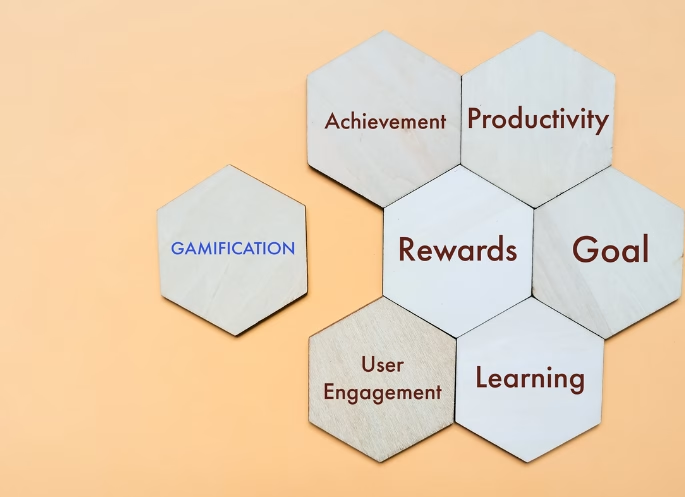What if eating your veggies earned you points? Or drinking enough water unlocked a reward? In 2025, that’s not science fiction — it’s called nutrition gamification, and it’s turning the way we eat into something surprisingly fun.
Thanks to technology and behavior-based tools, healthy eating has evolved beyond food pyramids and boring tracking. Instead, it’s becoming a challenge-based experience where consistency, small wins, and friendly competition drive real progress.
1_What Is Nutrition Gamification?
Gamification is the use of game-like elements — points, levels, badges, or streaks — in non-game activities. When applied to nutrition, it transforms everyday habits like drinking water, eating vegetables, or skipping sugar into interactive goals and rewards.
The result? Eating well no longer feels like a chore. It feels like progress, and progress feels good.

2_How Does It Work?
Gamification in nutrition typically includes features like:
Points for completing daily food goals
Streaks for consistency over days or weeks
Badges for milestones like “Meatless Monday” or “No Sugar Week”
Progress bars or levels showing how far you’ve come
Challenges or leaderboards to compare progress with friends or family
These mechanics tap into our natural desire to improve, achieve, and compete — without feeling forced.
3_Real-Life Examples & Research Backing
User Preferences and Personalization
Personalized gamification is transforming the way we use nutrition apps. In a recent study where 308 people were surveyed, the most preferred gamification elements were goals, progress bars, and reward coupons. These features not only make the apps more enjoyable but also encourage long-term healthy eating habits.
The takeaway? Nutrition apps that match your personality and motivation style are more likely to keep you engaged and help you reach your dietary goals. For example, if you’re someone who enjoys tracking progress or completing tasks, features like progress bars and daily goals may be especially effective. If you respond well to external rewards, digital coupons could be the right push.
Youth Nutrition and Education
Gamification shows promising results in improving children’s and adolescents’ nutrition knowledge and healthy eating habits. In a meta-analysis of 23 randomized controlled trials, interventions led to increased fruit and vegetable consumption and significantly higher nutritional knowledge scores. While no major changes in body weight were observed, these findings show that gamified education can effectively teach healthier eating behaviors early on helping prevent future chronic diseases.
Gamified Grocery Shopping
Moreover, Gamification can significantly improve the nutritional quality of online food purchases. In a study involving 1,228 participants, those who shopped with gamified nutrition labels—represented by crown icons and a scoreboard—chose significantly healthier foods. On a limited budget, participants exposed to gamification collected more nutrition crowns on average than those without it. Budget differences alone had minimal impact. These findings suggest that adding game-like features to online grocery platforms may help guide shoppers toward better food choices, regardless of their spending.
4_ Nutrition Gamification benefits
Beyond the fun, gamifying nutrition leads to real changes in behavior:
Better habit formation: Repetition + reward = long-term change
Increased awareness: You pay attention to what you eat and how it affects you
Positive reinforcement: Progress is visual, immediate, and encouraging
Higher consistency: People are more likely to stick with it, even after setbacks
By focusing on small wins, people avoid burnout and build healthier routines that last.
5_Final Thoughts
Healthy eating doesn’t have to be boring, rigid, or overwhelming.
With nutrition gamification, it becomes a challenge — a game — and even a source of joy.
Whether it’s drinking more water, cutting back on sugar, or eating more whole foods, gamification is helping people take control of their health in a way that actually sticks.
Because when you enjoy the process, you’re more likely to win — and in this case, the prize is your well-being.




